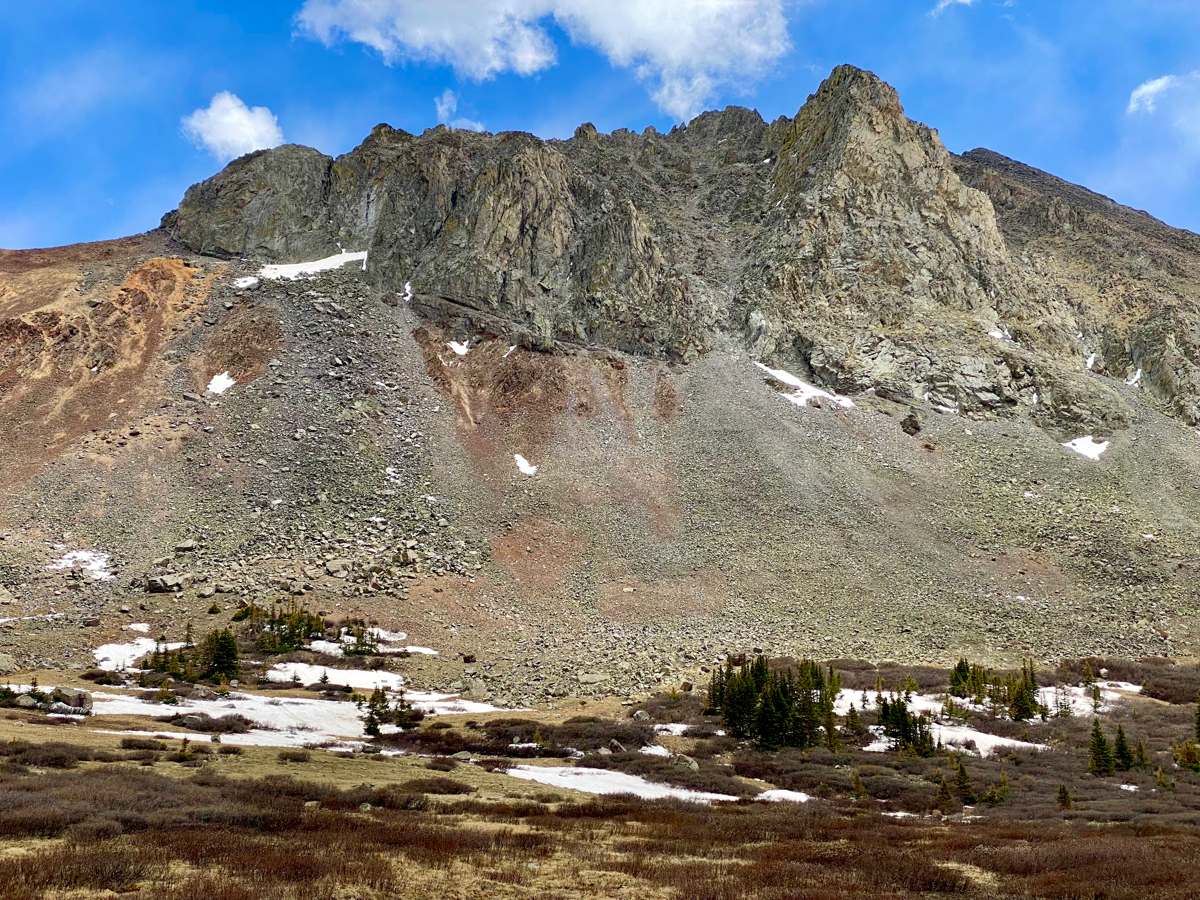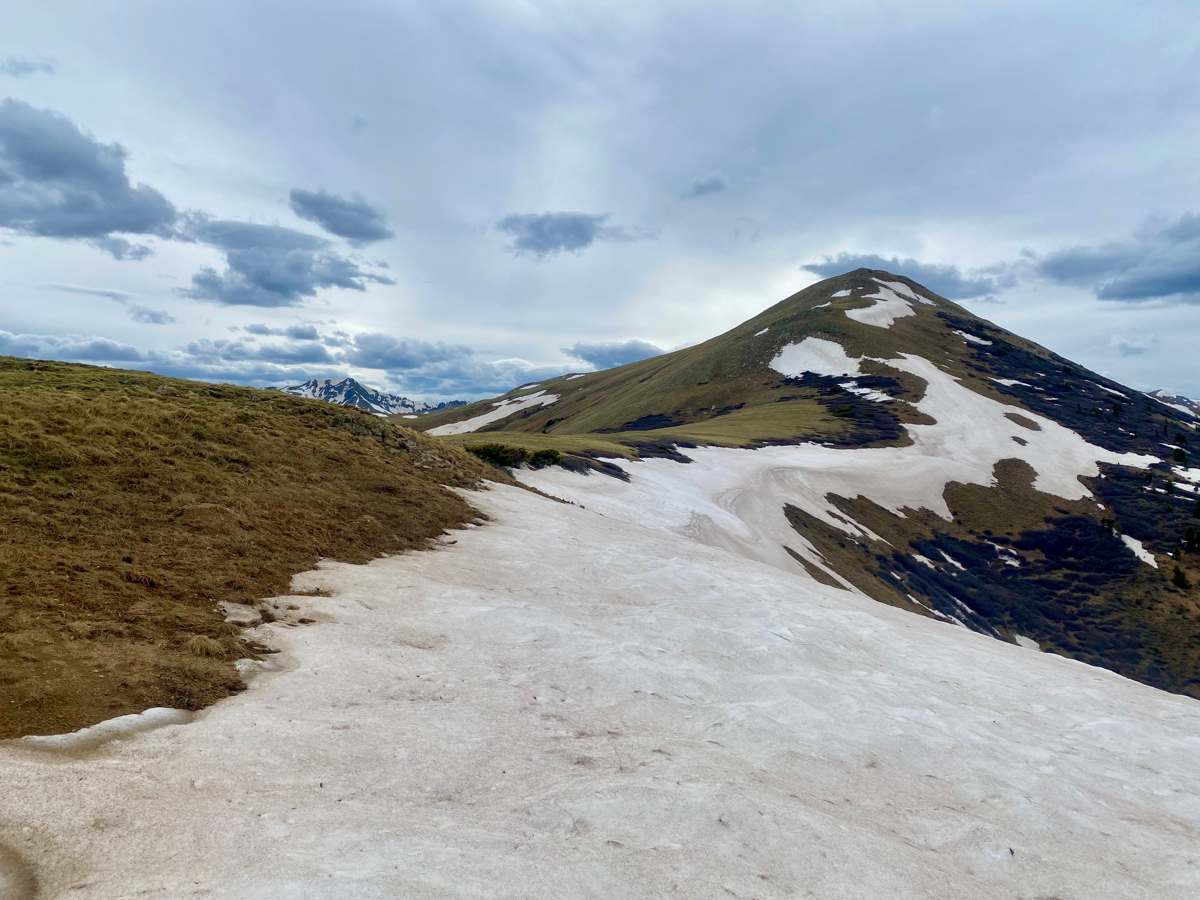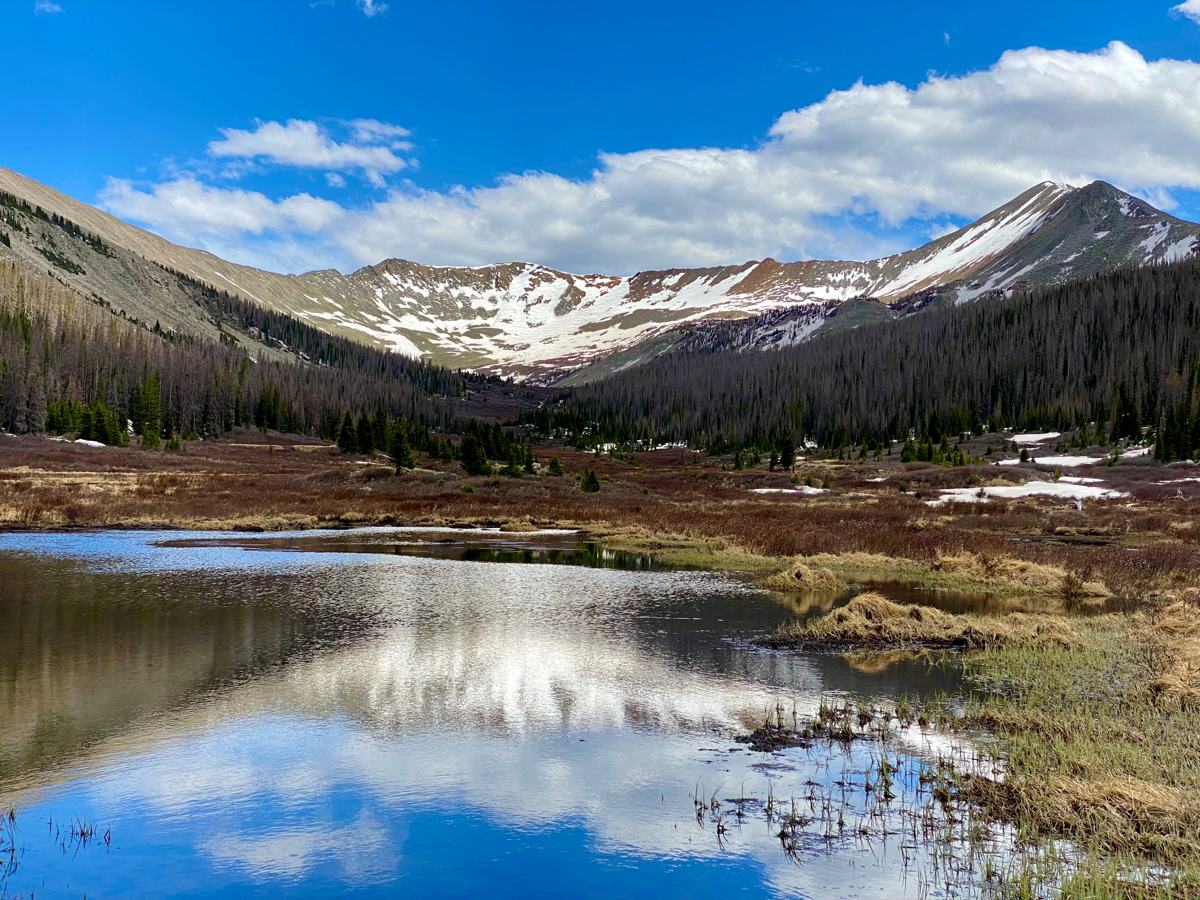I sit here — happy, dirty, and tired — in the Chalk Lake campground in full view of Mount Princeton in the fading evening light of Colorado. I’ve just wrapped up a 129-mile week, easily my biggest week since the adventure-filled summer of 2020.
As I mentioned back in February, I’m running the High Lonesome 100 Mile, and it’s centered around this Chalk Creek drainage, in late July, less than seven weeks away. My early winter training went well, with progress from the nadir of my fitness over the past decade to something more passable. Then, February through April weren’t as kind in terms of regular training … but I digress.
All along, I’ve wanted to hold a personal training camp on and along the High Lonesome course. With June and July being particularly busy on the work front, I didn’t know if the camp would happen now or in very early July, but here I am … even if I nearly bailed on the whole idea more than once.
So, why am I excited for a personal training camp, and why do I think they can be helpful when training for a focus ultramarathon?

A gnarly mountain to the east of Hancock Lake along the High Lonesome 100 Mile course in Colorado. All photos: iRunFar/Bryon Powell
Making Time
I know I’m not the only one who legitimately wants to train more, but lets any number of life obligations normally take up most of the time that I could use to train. Setting aside specific time for a training camp, whether it be a three-day-long weekend or a couple of weeks, allows you and others to know that you’ll be prioritizing training at least for a little while.
Now, that doesn’t mean you can’t still be at home, doing some work or the like, but for some discrete time period, other obligations come after training. That said, while I’ve managed such a training camp at home in the past, at the moment, I felt like I needed the physical separation from my daily routine and regular pressures to make this happen.
Peak Loading
While in theory it could be controversial, I think that given the right approach, a big training push can be a big help come your focus race. I like brief periods where I’m pushing some systems closer to their limits. (In fact, I’ve previously written about my “Powell Pushes.”) During these times, I can find and work through a possibly weak left glute or tight right shoulder that only falters under high loads, such as in a 100-mile race.
Like a training camp, these peak loads could be three big, back-to-back-to-back runs or they could be a week or three of much higher than usual mileage. In the latter case, I think it’s key to take some days off (or very close to it) by bunching a few bigger days with distinct breaks within the block. Even when I’ve run three 30-hour weeks in a row in Hardrock 100 training, that’s with some real rests in the middle.
Now for the all-important caveats. I’d say these peak loading blocks only work if you’ve been running for years and, preferably, have some extended experience with ultras. This is a recipe for disaster if your tissues aren’t ready for it. Speaking of which, you must be able to listen to your body and to shut ‘er down if and as appropriate. If you’re the sort to ignore pain and push through whatever the cost, this might not be wise for you.
And, no, these peak load periods probably aren’t helpful if you got some months-long, periodized, high-intensity training system that you’re working under. However, that’s not the approach I take these days, and I suspect that the vast majority of people reading this aren’t doing that either.
Buy-In
Once you start getting up to the 100-mile distance and beyond, buying into what and why you’re doing an event or adventure is often crucial. I’m guessing there’s a high correlation between my ultra failures and my failure to buy in.
Buy-in can come in many forms such as hiring a coach or specialist, doing rehab, researching the race, and dedicating time … such as for a training camp. This buy-in can get you to the starting line with a more determined stance and might be just the answer you need when that trying time comes in your ultra.
Course Knowledge
It’s a bonus if you can get out to the course for your training camp. It adds to the buy-in, matches training stimulus to race conditions, and allows you to learn about the course, if you’ve not run the race previously. In learning about the course’s particulars, you can hopefully better match your future training to its specifics.
On the other hand, it’s worth considering whether you enjoy novelty and surprises. While I’m logging big miles around the area of the High Lonesome course and some miles on it, I’m not running the course on repeat. I want to have familiarity with the terrain, but also for there to be some mystique come the race.
Confidence
Whether it’s from the peak loading, the buy-in or, possibly, the course knowledge, your training camp should put you on the start line … and on the course with more confidence than you’d have otherwise.
Call for Comments
- Have you ever held your own training camp for a race?
- If so, how’d it work out?




